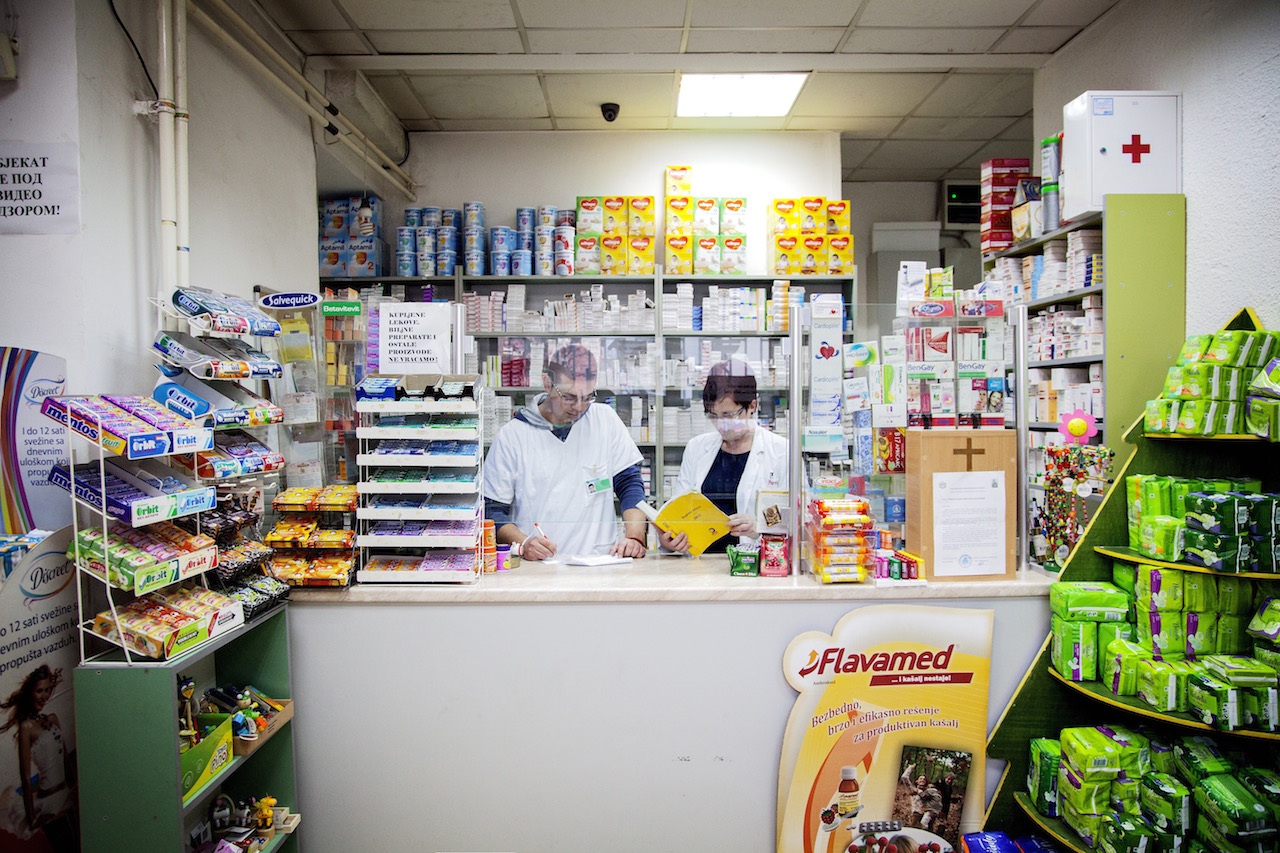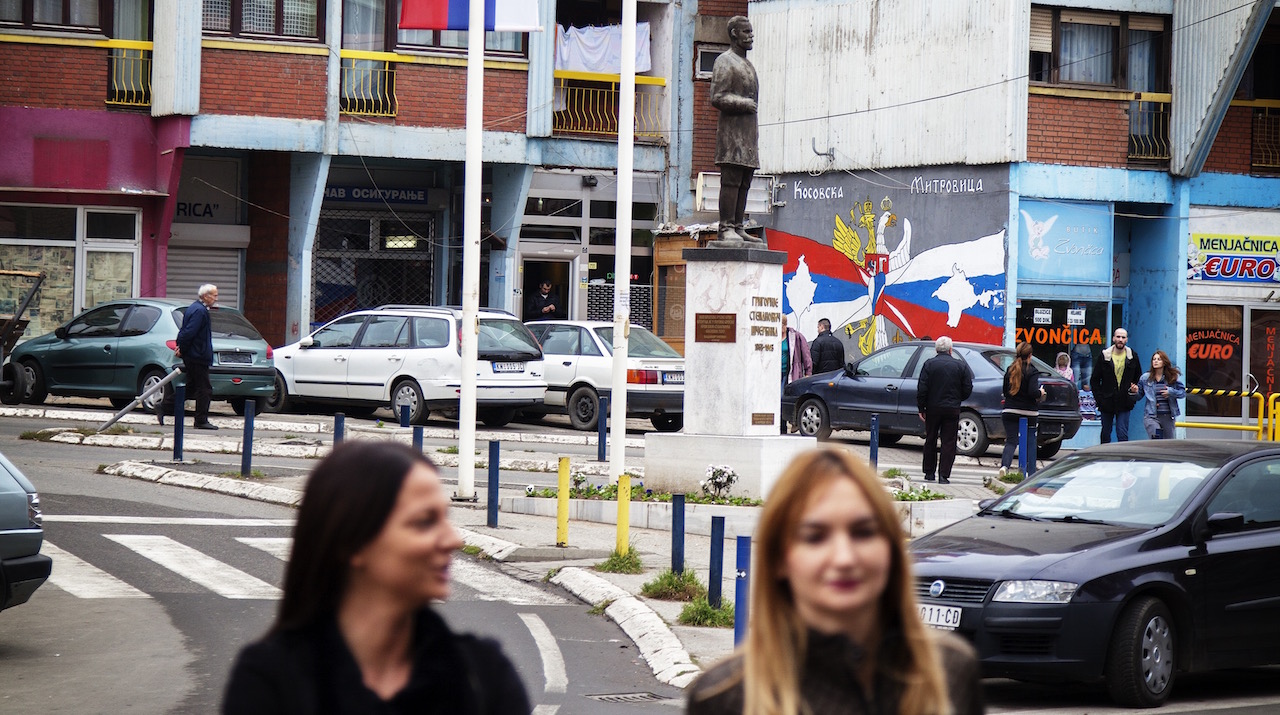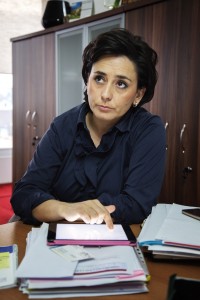

As the transition of power proves difficult, the mainly Serbian community still awaits the promise of a normal life.
A raft of agreements reached between Kosovo and Serbia since 2011 are designed to improve relations and make life easier for people on both sides of the border. But, for pharmacist Blagoje Savic, from Zvecan in northern Kosovo, they’ve just made life more complicated and expensive.
“Once we raised our prices, people went to buy their medicine in Serbia, so they did not have to pay the additional tax,” he lamented, referring to the fact that he now pays Kosovo Customs duties of 16 to 27 percent.
His pharmacy is one of many businesses, organizations and public institutions that have had to start operating under Kosovo law as a result of the EU-brokered agreement between Kosovo and Serbia reached on April 19, 2013.
According to Savic, Kosovo Customs told him in October that he must bring his pharmacy into line with Kosovo regulations – and that his staff must have qualifications recognized by Kosovo – from next January.
“The people who are discussing this situation in Brussels don’t know the situation on the ground,” grumbled Savic, who is worried by all the red tape he must deal with in a short period of time.

Kosovo Customs referred Prishtina Insight’s queries about Savic’s situation to the office of Deputy Prime Minister Edita Tahiri, which is overseeing the implementation of the agreements. Tahiri’s office said it was aware of the issue and was working on it.
The Brussels agreement focused primarily on reintegrating Kosovo’s four northern, mainly ethnic Serbian, municipalities into the rest of Kosovo. Serbia had continued to run them de facto following the end of the war in Kosovo in 1999.
Signed after two years of technical discussions on issues like energy infrastructure and diplomas, the accord has yet to be implemented in full, however.
Many people in the north feel left in limbo. Currently, they have no access to any judicial system, must pay taxes to Kosovo and rely on Prishtina-funded municipalities for services. At the same time, Serbia continues to fund and run their schools and hospitals.
The northern territory has slowly come under the Prishtina government’s control. Elections administered by Prishtina were held in November 2013 and June 2014.
Since May 2014, as per the agreement, only one police force, the Kosovo Police, has functioned in the north.
However, the implementation of other accords has stalled – in part because of national elections in Serbia and Kosovo, followed by the prolonged period of deadlock over the formation of a new Kosovo government.
Serbia’s courts have ceased to function in the north as per the agreement, but Kosovo has not yet filled the vacuum with its own judicial institutions because of disputes over the structure of the judiciary and its future staff.
“The government in Belgrade keeps us on ice,” said a judge in the north who did not want to be named because of the sensitivity of the situation.
“They have limited our activities and they forbid us to act outside of official authority,” the judge added.
“At the same time, we have had no instructions on our authority. We are forbidden to communicate with the public and the media. We accept wages that we do not earn. There is no public strategy, what we should do and for how long.”
The judge’s sentiments express the uncertainty felt by many people in the north, who are caught between two governments.
An association of Serbian-majority municipalities, designed to include the four in the north and another six across Kosovo, has yet to be formed. Disputes continue over how much autonomy it will enjoy. All that has been agreed is that it will oversee health, education, urban planning and culture.
Savic’s business, “Moc Prirode,” (‘The Power of Nature’) has outlets in North Mitrovica and in Zvecan. It serves residents of those towns and Serbs across Kosovo who come to hospital in North Mitrovica for treatment.
In October, the Kosovo Customs Agency told him that as of January 1, 2015, his business would need to be licensed and verified according to the standards of the Kosovo government. All medicines he imports will have to be approved and licensed by Kosovo institutions.
In addition to the new cost of customs taxes, one of the major problems that Savic and other medical businesses face is the issue of pharmaceutical firms registering in Kosovo.
Companies like his will not be able to purchase goods from businesses that have not registered and been licensed in Kosovo. However, Galenika, the pharmaceutical company that supplies much of Savic’s needs, is owned by the Serbian state. Since Serbia disputes the independence of Kosovo, it will not “re-register” in Kosovo.

Savic fears that the higher costs of medical supplies bought at home will prevent people from getting treatment. “What will happen if patients cannot receive the medicine they need? This could be a humanitarian disaster,” Savic said.
Lidia Tabakovic, assistant director of Galenika’s export division, said she had not heard about this possibility. “All sorts of stories are going around,” she said. “I am confident that our chambers of commerce will sort this out.”
Savic’s pharmacist, Miodrag Trajic, faces another obstacle. In 2011, Kosovo and Serbia agreed on mutual recognition of each other’s higher educational qualifications.
Trajic, who graduated from the University of Kragujevac in Serbia in 2012, has not been able to get his diploma recognized by Kosovo authorities
The Ministry of Education in Kosovo directed him to SPARK, a Dutch organization that has served as an intermediary between Kosovo and Serbia on the issue.
SPARK applies on behalf of graduates from both countries for recognition by the European University Association. However, SPARK’s two-year contract expired in mid-2014, and has yet to be renewed.
Serbs from across Kosovo also come to university in North Mitrovica, as it is the only higher education institute in Kosovo with a curriculum in Serbian. Its 12,000 students follow Serbia’s study system, however, and Kosovo has refused to recognize its diplomas.
It was not included in the 2011 agreement on mutual recognition of diplomas, which means that its graduates cannot apply for jobs in the public sector in Kosovo that require higher educational certificates.
The bureaucratic infrastructure also remains absent in the north of Kosovo. By Kosovo law, sanitary inspectors must inspect each pharmacy. Each municipality usually has at least one inspector. However, at present, none of the northern municipalities has any.
As a businessman, Savic is concerned that unless a solution is found to enable chemists like his to import goods from Serbian pharmaceutical companies, doctors will have to sell medicines that they have no experience with.
Healthcare is a major concern for Kosovo Serbs, most of whom travel to Mitrovica for treatment. While some in Prishtina complain about the Serbian-financed “parallel structures” operating in the north, officials working in Mitrovica maintain that when it comes to schools and hospitals, the systems are not parallel structures but the only structures.
The Kosovo government this year has budgeted 3 to 5 million for each of the northern municipalities, which is markedly less than Belgrade spends in the four municipalities.
Savic fears some Serbs will leave Kosovo if they lose confidence in the medical system and can’t access the care they need. “Serbs from all over Kosovo come to the hospital in Mitrovica to be treated in their native language,” he said.
“If we cannot ensure quality care and access to medicine, people will begin to leave for good,” he added.

Adrijana Hodzic, who runs the Kosovo government’s office in North Mitrovica, which provides municipal services, says residents of northern Kosovo thought the Brussels agreement would finally bring them the normal life they craved.
“People in the north expected living conditions in all aspects of life to improve: better rule of law, education and health care,” Hodzic recalled. ”The question is: are people too ambitious?”
This story was written as part of BIG DEAL, a civic oversight project examining the implementation of agreements between Kosovo and Serbia. The project is being implemented by BIRN Kosovo, Internews Kosova and Center for Research, Transparency and Accountability – CRTA, with support from the British Foreign & Commonwealth Office and the Rockefeller Brothers Fund.
20 November 2014 - 15:26

In Kosovo’s public discourse, early pregnancies are frequently portr...

A significant portion of the information consumed by the citizens of K...

Former intelligence agency chief Driton Gashi was sentenced to four ye...

Kosovo has emerged as a critical transit point along the Balkan route,...